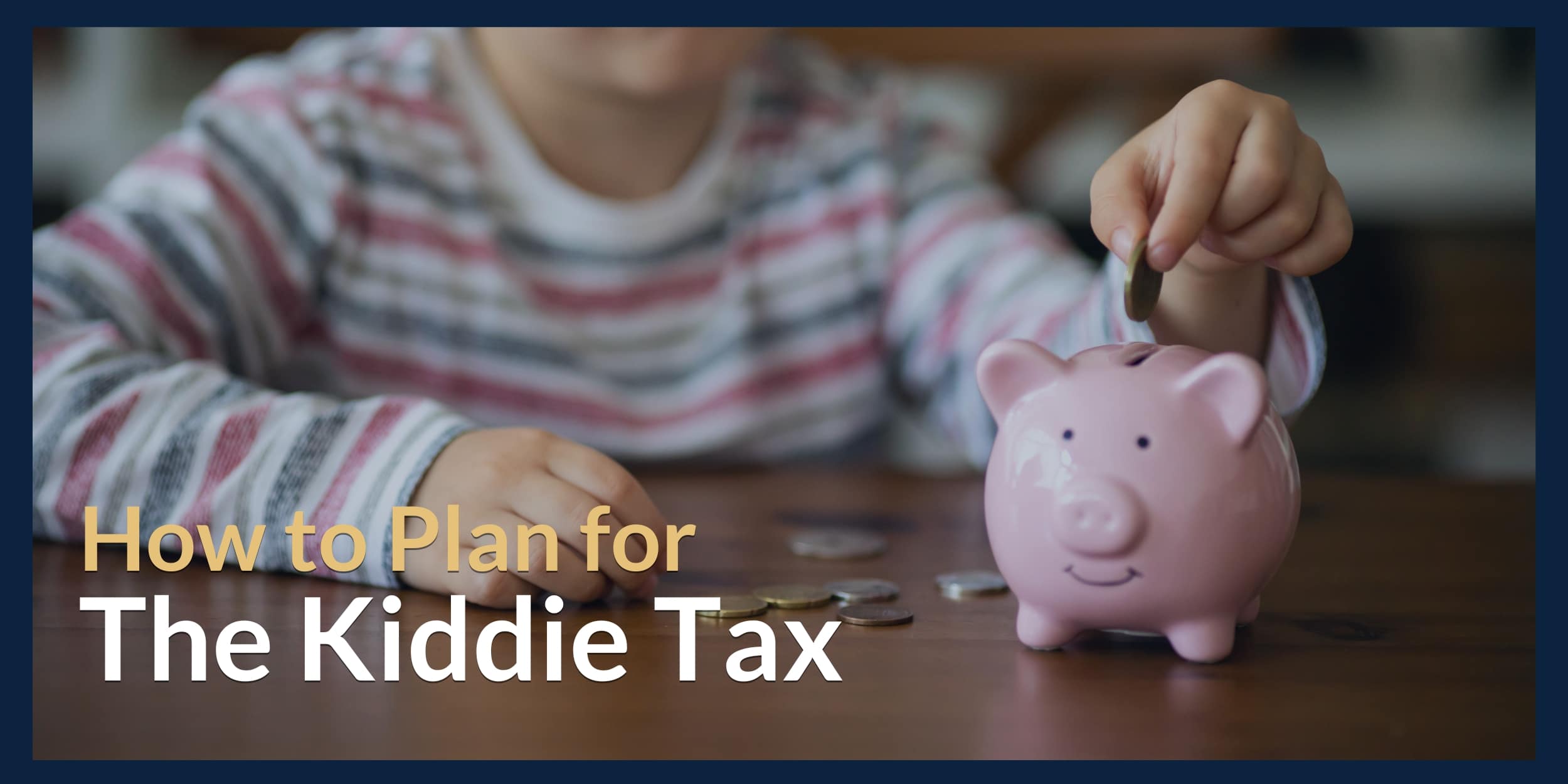
What is the Kiddie Tax?
The “kiddie tax” is a 1986 Tax Reform Act rule in the United States designed to prevent families from avoiding taxes by shifting large amounts of investment income to their children, who are typically in lower tax brackets. The tax is imposed on unearned income (in most cases, investment gains, dividends, and interest) received by individuals 18 or younger, but also applies to full-time students under 24 who are claimed as dependents.
Why is it Important?
Many parents set up custodial accounts such as a Uniform Transfers to Minors Act account (UTMAs) to give their child(ren) a head start in the investing world. Gifts to UTMAs are generally irrevocable, meaning if a parent deposits $5,000 for their child, the parent loses the right of ownership to those assets permanently. Therefore, it would make sense for those assets not to be subject to the parents’ tax rate, right?
Unfortunately, due to the kiddie tax, that is not entirely the case. The IRS makes it clear that any unearned income from a child or dependent student in excess of a threshold (adjusted for inflation annually) is subject to the kiddie tax.
How Does the Kiddie Tax Work?
In 2024, the kiddie tax is calculated as follows:
- The child gets a $1,300 standard deduction. If investment income is under that amount, no tax applies.
- The next $1,300 in unearned income is taxed at the child’s income tax rate, which is 10%.
- Amounts greater than $2,600 are then taxed at the parent’s marginal tax rate.
For example, say Tommy (age 13), has a UTMA account set up for him by his parents. The account has $10,000 worth of Apple stock with a cost basis of $5,000. If Tommy sells the stock, he will have incurred $5,000 in capital gains. Assuming that was his only income for the year, and his parents are in the 24% marginal tax bracket, the tax consequence would be calculated as follows:
- The first $1,300 is not taxable.
- The next $1,300 is taxed at 10% ($130)
- The remaining $2,400 is taxed at the parent’s marginal tax rate of 24% ($576)
Therefore, Tommy would need to file a tax return to pay $706 in tax.*
*Please note that if the child also has earned income for the year, the rules become slightly more complicated. Consider consulting with a tax advisor or financial professional for more information.
Receiving Investment “Gifts” Are Not Free
Parents and guardians should be aware of both the tax implications of their children’s income and consider how their interactions affect filing and tax liabilities. Proper tax and investment planning and consulting with a financial advisor or tax professional can help manage the tax burdens associated with the kiddie tax and optimize the child’s tax situation.
Customized Investment Management Solutions
At Mission Wealth, we develop customized, globally diversified, tax-efficient portfolios tailored to your financial plan and built to stand the test of time. Contact us below for a free portfolio review.Investment Advice Fit For Your Needs
At Mission Wealth, we are deeply rooted in an evidence-based investment strategy built on decades of Nobel Prize-winning research. We ignore the media noise and Wall Street hype, relying instead on a long-term approach and proven principles that reward investors over time. For more information on Mission Wealth's investment strategies, please visit missionwealth.com.
To meet with a Mission Wealth financial advisor, please contact us online today or call us at (805) 882-2360.
Let's Keep in Touch!
Subscribe for exclusive content and timely tips to empower you on your financial journey. Our communications go straight into your inbox, so you'll never miss out on expert advice that can positively impact your life.Recent Investment Insights Articles

Is Private Equity the Missing Piece in Your Investment Strategy?
June 26, 2025
Market Update for 6/18/25
June 18, 2025


